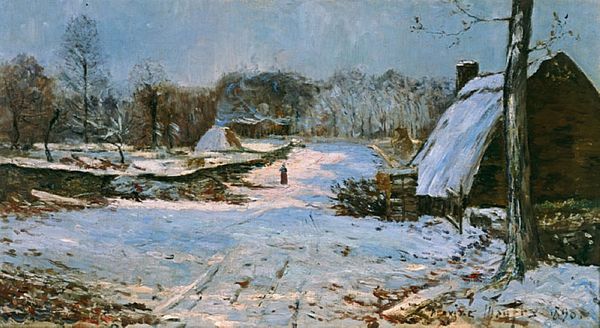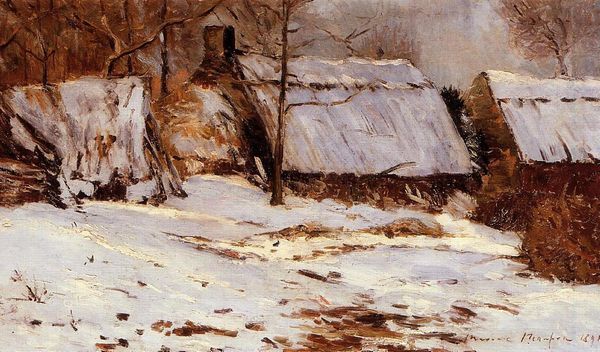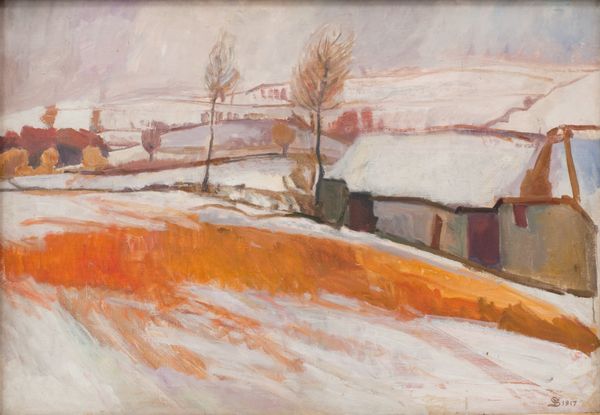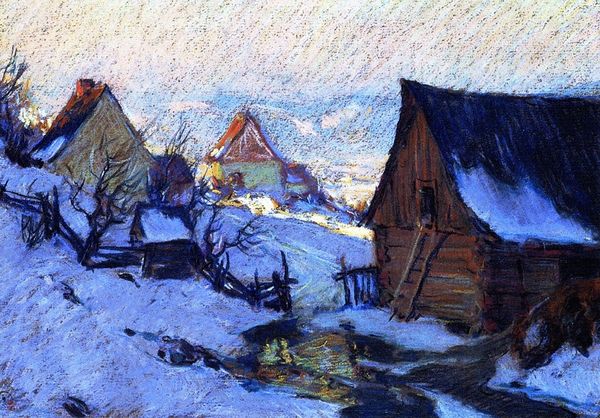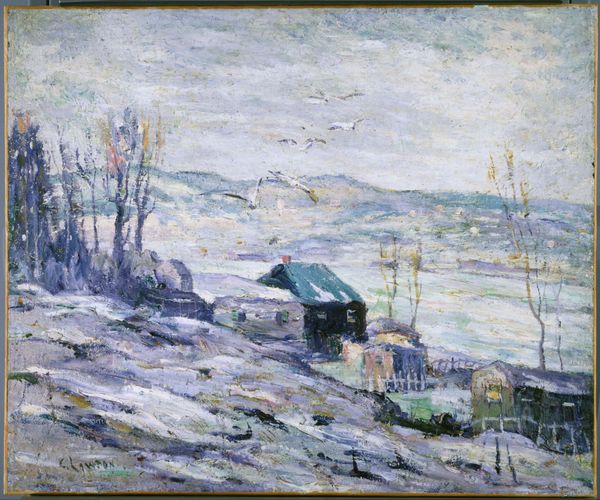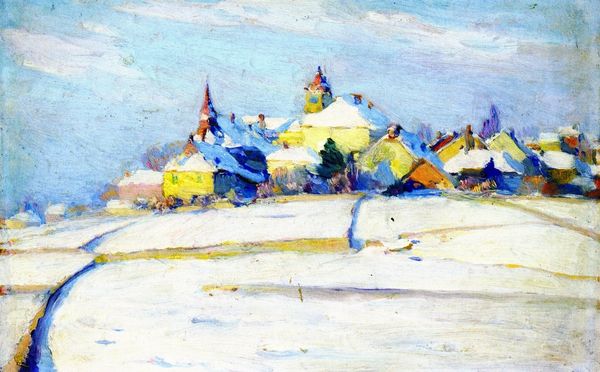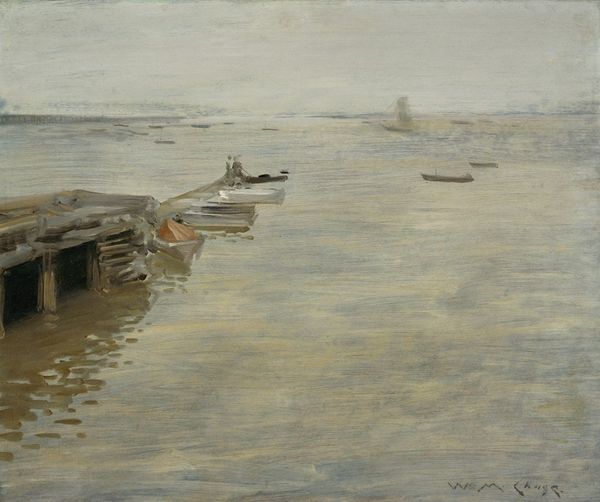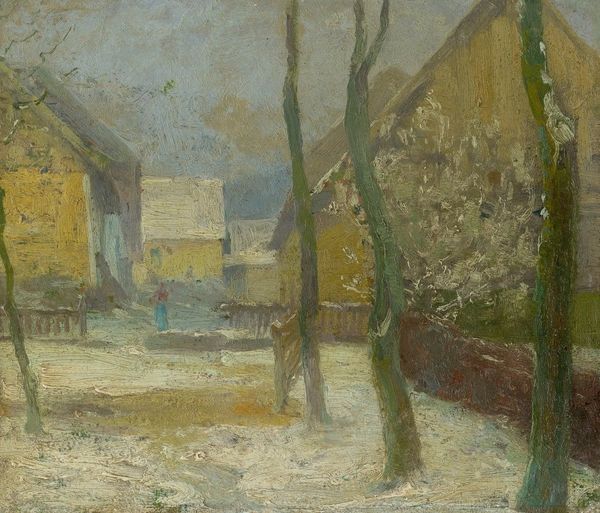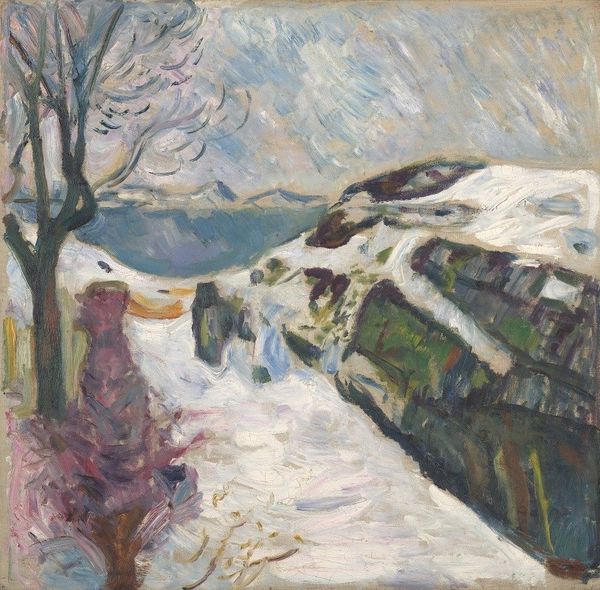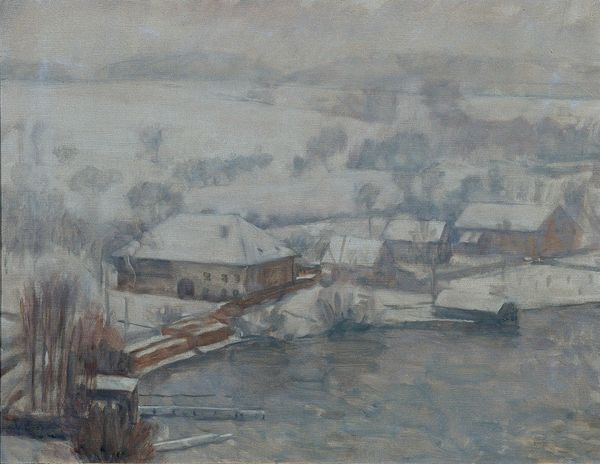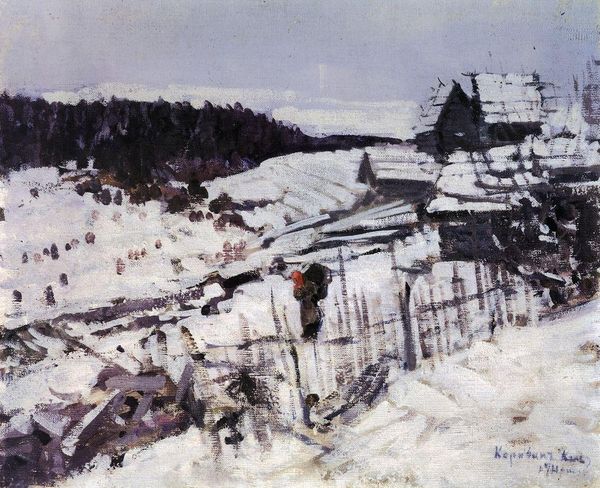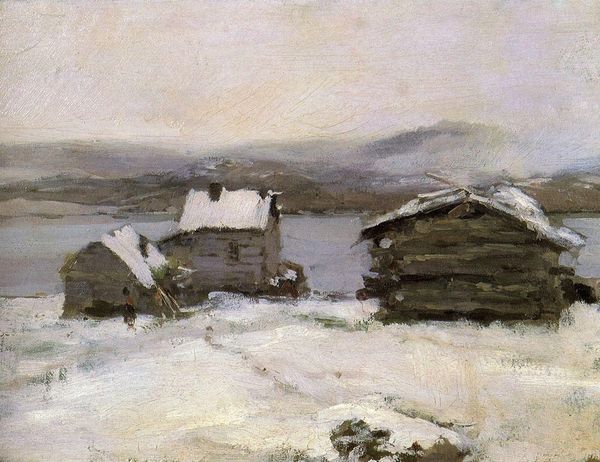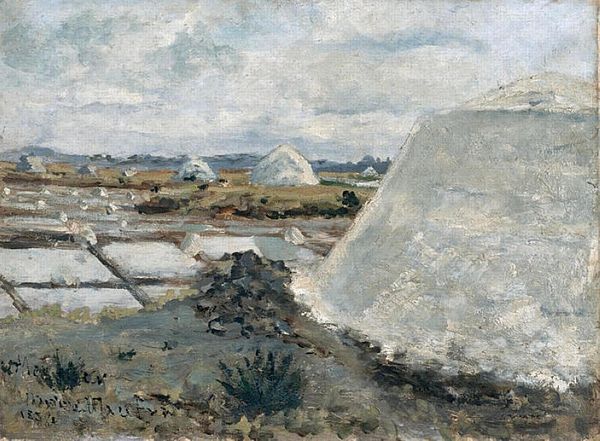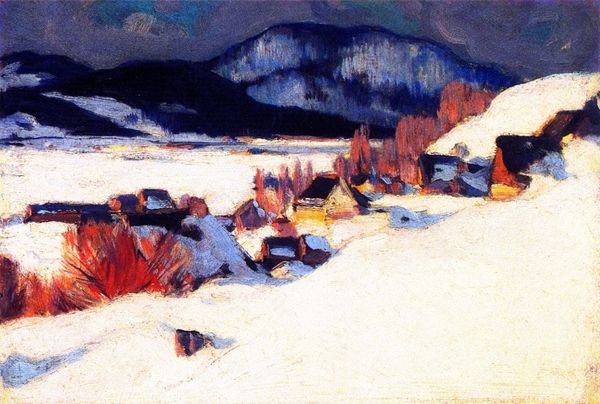
painting, plein-air, oil-paint
#
painting
#
impressionism
#
plein-air
#
oil-paint
#
landscape
#
impressionist landscape
#
painted
#
oil painting
#
post-impressionism
Copyright: Public Domain: Artvee
Curator: I am so drawn to this landscape – it feels quiet, muffled somehow, almost dreamlike. Editor: It certainly possesses an understated quality. What you’re describing captures the very essence of Paul Gauguin’s “Pont-Aven sous la neige, ou Effet de neige," created in 1888 using oil paint in the open air. The title translates to "Pont-Aven in the Snow, or Snow Effect.” Curator: I think it is beautiful the way he’s caught that heavy stillness that snow brings to a place. The subdued colors, the simple forms… they really convey the silence. And yet, looking closely, the brushwork is so alive! Editor: Absolutely. What’s interesting to consider is that Gauguin painted this during a pivotal period. He had retreated to Pont-Aven in Brittany, seeking a more authentic, less industrialized world. The painting speaks, in a way, to the desire to escape, which resonates so powerfully with anxieties surrounding rapid modernization during that period. The romanticization of rural life has a long history, especially as societies urbanize. Curator: I completely agree. The simple architecture almost becomes secondary to the mood, don’t you think? He’s not so interested in a realistic rendering of the houses. It is all about evoking a feeling. Editor: True. Consider that Gauguin was consciously moving away from impressionism, seeking a more symbolic, subjective form of expression – a movement later termed Post-Impressionism. His paintings should evoke emotions through the juxtaposition of colour, shapes, and tone. This painting makes me wonder about Gauguin’s internal weather alongside the real snow in Pont-Aven; he later rejected the perceived stuffiness of Europe and ventured further to places such as Tahiti, driven by this similar desire for something 'other'. Curator: That almost melancholy resonates, in that way. A longing that finds a visual echo in a snow-covered landscape… There’s an interesting comparison there to be unpacked. Editor: Yes, and even today, it invites us to reflect on our own relationship with nature and the yearning for simplicity in a complex world. Curator: Thanks. Editor: Of course.
Comments
No comments
Be the first to comment and join the conversation on the ultimate creative platform.
